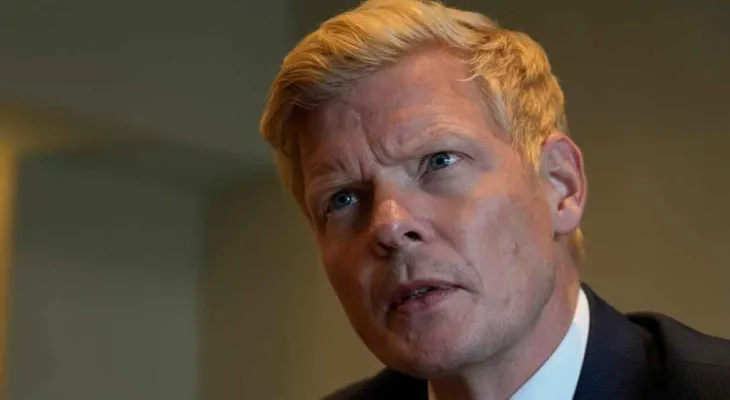Search here
Newspaper
Search here

Arab Canada News
News

Published: July 24, 2024
The United Nations envoy to Yemen warned on Tuesday that recent developments in the Red Sea, Israel, and within the country "show the real danger of a destructive escalation at the regional level" – but he also pointed out that there is a glimmer of hope.
Hans Grundberg stated that the warring parties in Yemen – the internationally recognized government and the Houthi rebels – informed him Monday night "that they have agreed on a path to calm a series of actions and countermeasures that sought to tighten their grip on the banking and transport sectors."
However, he warned the United Nations Security Council that seven months of escalating actions reached a "new and dangerous level last week," which witnessed the Houthi drone attack on Tel Aviv and retaliatory Israeli strikes on the main port of Hudaydah in Yemen and its oil and energy facilities.
He added that Houthi attacks on vessels in the Red Sea and the surrounding waterways are ongoing and that the rebels are escalating their campaign "on civilian space and against international organizations." He noted that airstrikes on Houthi targets by the United States and the United Kingdom are also continuing.
Grundberg also warned that escalating economic issues "translate into public threats of returning to a comprehensive war."
Yemen has witnessed a civil war since 2014, when the Iran-backed Houthis seized a large part of northern Yemen and forced the internationally recognized government to flee the capital, Sana'a. In the following year, a Saudi-led coalition intervened to support government forces, and over time the conflict turned into a proxy war between Saudi Arabia and Iran.
While fighting decreased significantly since the six-month truce in 2022, Grundberg informed the council that clashes have been reported along several front lines this month "and we have seen an increase in military preparations and reinforcements."
The rivalry between the Houthis and the Southern Government has fueled economic division, as the competitors have established separate and independent central banks and different versions of the country's currency, the rial.
Grundberg told reporters after the press conference that the competitors informed him Monday night they had reached an agreement on four points to de-escalate the ongoing confrontation over the banking sector and the operations of Yemenia Airways.
He told the council that the "understanding" came after months of communication with his office, which has warned of the risks that "deepening the militarization of the economy" poses to the Yemeni people.
"I welcome the decision of the parties to choose a path of dialogue, and I look forward to further engagement with the parties to support them in implementing their commitments regarding the banking sector and Yemenia Airways," he added. "The goal remains a unified currency, a unified and independent central bank, and a banking sector free from political interference."
However, while Grundberg welcomed both sides' willingness to engage on economic issues, he said: "I reiterate my warning to the council that we risk a return to widespread war and all the resulting expected humanitarian suffering and regional ramifications."
Grundberg told reporters that the four points are similar to commitments both sides made in September to enter into dialogue.
He confirmed that he informed the council in closed consultations after the meeting, "We have been here before, and previous opportunities were lost in the past because they never translated into organized dialogue on the core issues."
The UN special envoy stated that he will provide all the support that the adversaries need to implement the agreed-upon measures and expects them to translate their commitments to de-escalate into actions.
He noted that these include the need to coordinate monetary policy, progress towards a unified central bank and a unified currency, and guarantees to ensure the independence of the central bank from political interventions.
Grundberg said: "Temporary measures can serve as band-aids, but seriousness in building an economy that benefits all Yemenis means that the parties must also engage in long-term core issues."
Yemen is the poorest country in the Arab world and faces one of the worst humanitarian crises globally.
Joyce Msuya, the acting UN humanitarian coordinator, told the council that Yemen's GDP has shrunk by more than half since the start of the conflict, and a recent World Bank analysis found it contracted further last year.
She added that the devaluation of the rial has put already high food prices beyond the reach of millions of people.
Msuya continued: "I urge the parties to seize this opportunity to find sustainable solutions to these challenges. Millions of people across the country are counting on it."
Comments